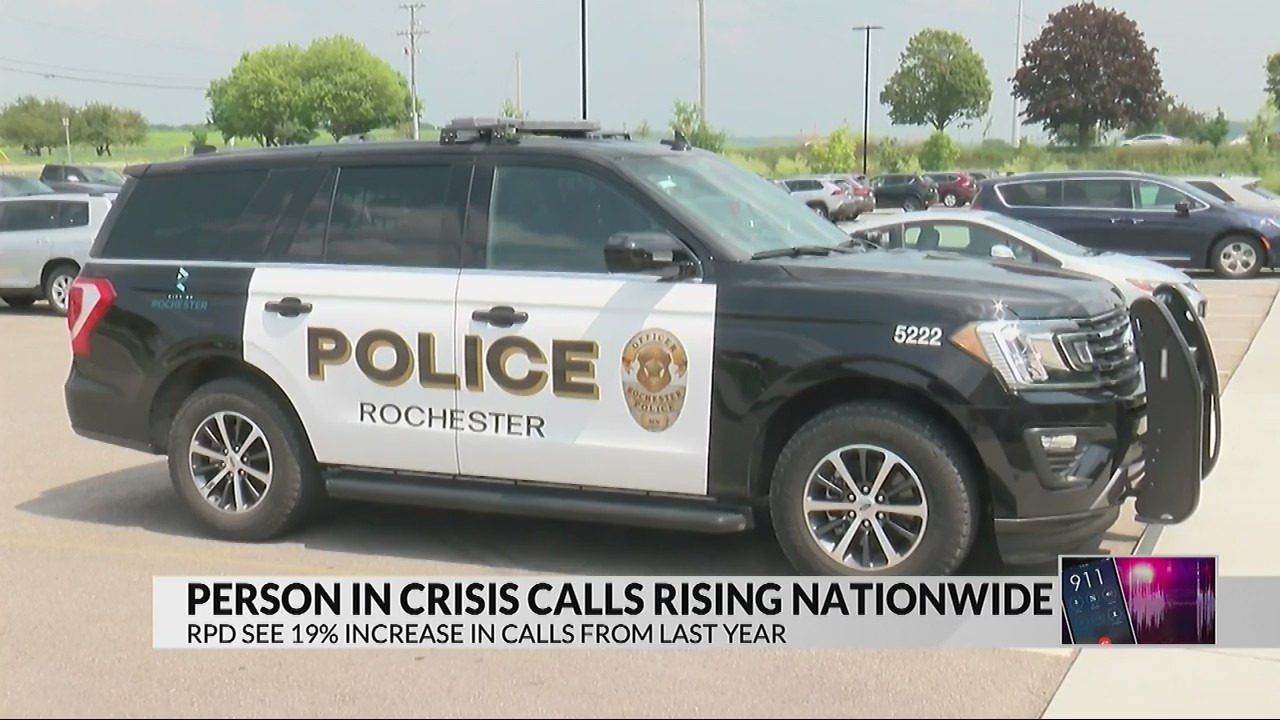Rochester Police Department sees increase in crisis calls
[anvplayer video=”5188205″ station=”998128″]
(ABC 6 News) – The Rochester Police Department says it is seeing a spike in calls from people in crisis.
Last year they received 1,692 crisis calls and already this year they’ve received 1,177. When broken down on a monthly rate, that is a 19% increase.
Handling these calls is a team effort. More often now officers are trained in responding to crisis situations as they receive many of these types of calls. They then direct the person in crisis to more resources that can help.
When RPD receives a crisis call, they work to de-escalate the situation while they determine exactly what resources that person needs.
Lt. Paul Gronholz with RPD works in crisis intervention and de-escalation training.

“There are more people calling, and that’s a good thing because we want people to call when they need help,” said Gronholz.
The increased number of calls shows police that people are getting more comfortable calling them when in crisis, but it also shows that there is a strong need for crisis intervention resources.
Licensed Professional Clinical Counselor and Alcohol and Drug Counselor Tim Volz feels privileged when someone comes to him in a crisis because it means they trust him.
“When somebody comes in in crisis, this is a serious situation. This is something that you have to make sure that you sit with them and give them the opportunity to talk through what’s going on,” said Volz.
The most important thing that both law enforcement and mental health counselors do when responding to a crisis is to listen and help that person calm down.
“We don’t want officers to necessarily rush through those calls. We want them to try and slow things down, try to get to the heart of the problem, and then connect them with the resources that they need,” said Gronholz.
The state of Minnesota requires every police officer to be trained in crisis response and de-escalation. In Rochester, the police also work with a team of social workers that help law enforcement respond to these calls.
“Trained social workers respond either with us, or in some cases instead of us to provide the person that calls with the best resources that they need,” said Gronholz.
There are currently four community outreach specialists that work with RPD and the department has requested additional resources to expand the team.
The goal for everyone who responds to these calls is to first make sure the person in crisis is stable, then connect them with the resources they need.
“You really have to take that person in and make sure that they’re walking out the door with hope,” said Volz.
There are many ways to get help if you or a loved one is experiencing a crisis situation.
Other than calling 911, you can call or text the National Crisis Hotline 988, or the Crisis Text Line at 741-741.
These resources are all available 24/7.